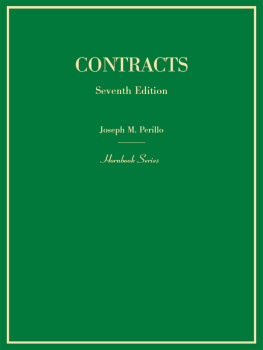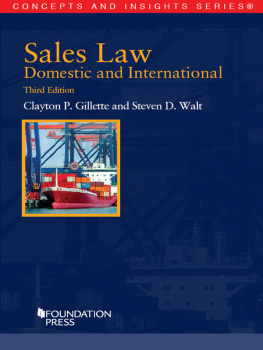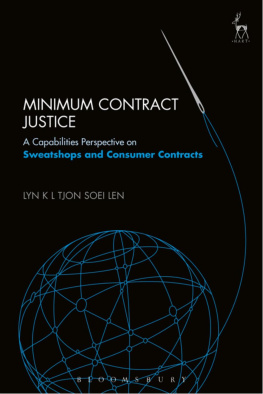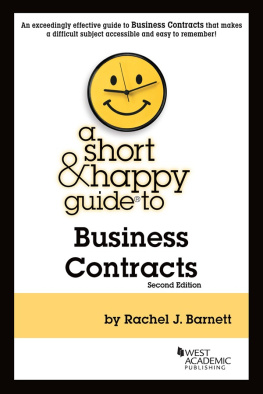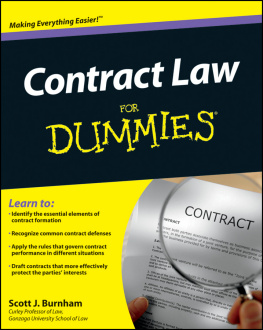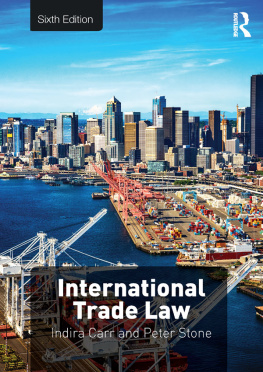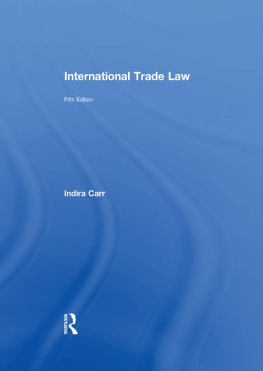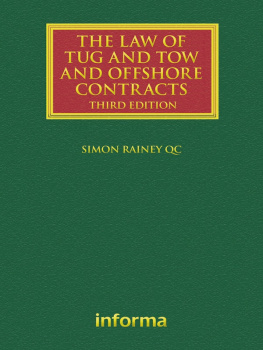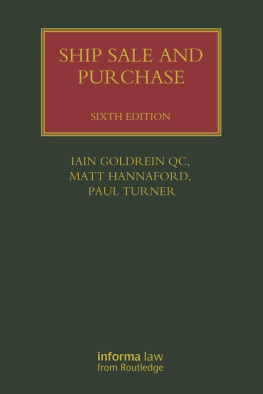
Great Clarendon Street, Oxford, OX2 6DP,
United Kingdom
Oxford University Press is a department of the University of Oxford.
It furthers the Universitys objective of excellence in research, scholarship,
and education by publishing worldwide. Oxford is a registered trade mark of
Oxford University Press in the UK and in certain other countries
Michael Bridge 2013
The moral rights of the author have been asserted
First edition published in 1999
Third edition published in 2013
Impression: 1
All rights reserved. No part of this publication may be reproduced, stored in
a retrieval system, or transmitted, in any form or by any means, without the
prior permission in writing of Oxford University Press, or as expressly permitted
by law, by licence or under terms agreed with the appropriate reprographics
rights organization. Enquiries concerning reproduction outside the scope of the
above should be sent to the Rights Department, Oxford University Press, at the
address above
You must not circulate this work in any other form
and you must impose this same condition on any acquirer
Crown copyright material is reproduced under Class Licence
Number C01P0000148 with the permission of OPSI
and the Queens Printer for Scotland
British Library Cataloguing in Publication Data
Data available
ISBN 9780199658251
Printed in Great Britain by
CPI Group (UK) Ltd, Croydon, CR0 4YY
Links to third party websites are provided by Oxford in good faith and
for information only. Oxford disclaims any responsibility for the materials
contained in any third party website referenced in this work.
To Rowena
PREFACE
This edition is substantially longer than the last edition. Much of it takes account of developments since the last edition, including the Rome I Regulation on the law applicable to contractual obligations and Incoterms 2010. There has also been a steady flow of case law, and rather more in the areas of contractual interpretation and letters of credit. The chapters on international sales governed by English law have not merely been updated: they have all been substantially revised for the sake of clarity and completeness. The greater part of the extra length in this edition is a major extension to the chapters dealing with the United Nations Convention on the International Sale of Goods 1980 (CISG). The coverage of the CISG is now twice as long as in the previous edition and is broken down into three, instead of two, chapters. Almost 80 States have now adopted the CISG (though not yet the United Kingdom) and there will be further accessions in the coming years. The chapters that formerly dealt with import and export licences and impossibility have now been consolidated into one. As with previous editions, material on the substantive part of English sale of goods law is left to the companion work, The Sale of Goods (2nd edn, 2009), to which frequent references in this work are made. A more expansive treatment of the implied terms of description, quality and fitness has nevertheless been inserted to clarify their application to commodity contracts.
For permission to use their standard forms in the appendices, I am grateful to GAFTA (Grain and Feed Trade Association) and FOSFA (Federation of Oil Seeds and Fats Associations). These forms provide an invaluable guide to understanding the subject of international sale. I am also grateful to the International Chamber of Commerce for permission to include UCP 600 on letters of credit and excerpts from Incoterms 2010 on CIF and FOB contracts.
Finally, my grateful thanks go to the staff of Oxford University Press for their understanding, patience, and assistance.
15 August 2012
PREFACE TO THE FIRST EDITION
This book deals with the law and practice of international sale of goods contracts before English courts and arbitrators. It assumes that English law is the applicable law of the contract. The reported cases are almost invariably about contracts concluded on standard forms selecting English law as the applicable law. For that reason, questions of choice of law receive only a passing mention. The reader is referred to standard texts dealing with the conflict of laws.
A prominent feature of English law in its application to international sales is that the reported cases almost always arise out of commodity sales transactions, no part of whose performance occurs in England and which usually concern parties who have no visible connection with England. The quantities involved have in recent decades increased to a great extent as the traffic in commodities across the North Atlantic has become concentrated more and more in ever larger bulk carriers, designed to take advantage of the economies of doing business in this way. A small number of north European ports, where large bulks are broken for further destinations, are large enough to deal with these carriers. The effect of these developments on the law has been felt principally in two areas. First, the practice of bulk shipments delayed the passing of property to individual end buyers so that it took place after payment was made. This meant that end buyers might not be able to sue the carrier for breach of the contract of carriage pursuant to the Bills of Lading Act 1855. It also meant, by subverting the security that normally comes with cash on delivery transactions, that end buyers were at risk of the insolvency of their sellers (or even of sellers further up the sales string). The statutory responses to these difficulties were, respectively, the Carriage of Goods by Sea Act 1992 and the Sale of Goods (Amendment) Act 1995. Secondly, a large number of the most recent cases have thrown up problems arising out of the intersection of a voyage charter party contract, whether entered into by the FOB buyer or the CIF seller, with the contract of sale of goods. Sale and charter party contracts have become increasingly intertwined.


